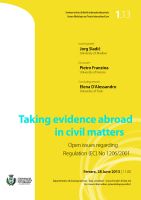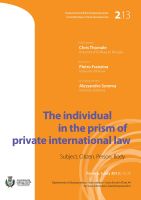Can a Court Sit Outside its Territorial Jurisdiction?
In Parsons v The Canadian Red Cross Society, 2013 ONSC 3053 (available here), Winkler CJ (of the Court of Appeal, here sitting down in the Superior Court of Justice) has held that a judge of the SCJ can sit as such outside Ontario. No authority, it seems, requires the SCJ to sit only in Ontario.
The decision seems to me, at least on an initial reading, largely based on pragmatism. It seems efficient to so allow and so the court does. But I have some preliminary sense that there are some larger concerns here that are not being fully thought through. The place where a court sits seems awfully fundamental to its existence and authority as a court. In addition, the brushing aside of concerns about the open court principle (see paras 48-50) seems too minimal.
Part of the decision is based on Morguard and the federal nature of Canada (see para 25), so maybe the judge could not so sit outside Canada?
For news coverage of the decision, see this story.
Could this idea get pushed beyond the fairly narrow bounds of this case? Say a case is started in Ontario and the defendant seeks a stay in favour of Alberta because of all the factual connections to that province. Could the plaintiff, if otherwise likely to see the proceedings in Ontario get stayed, ask the court to have one of its judges hear the case in Alberta, sitting as a judge of the Ontario court? That way the plaintiff gets an Ontario judgment and the defendant gets the case heard in Alberta…




